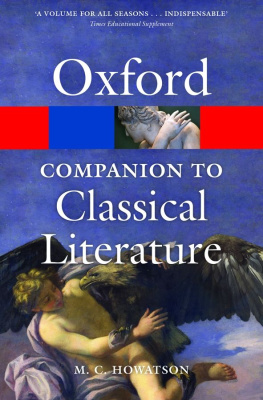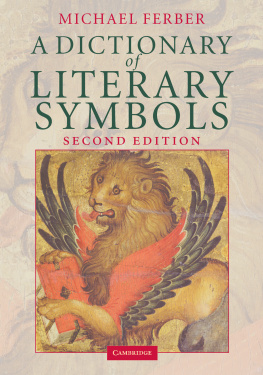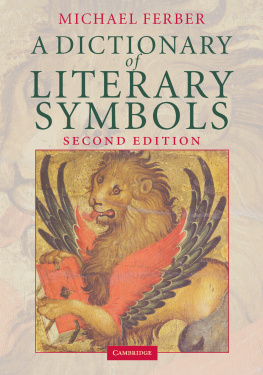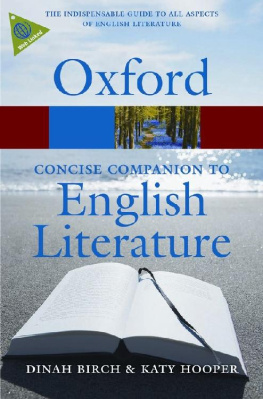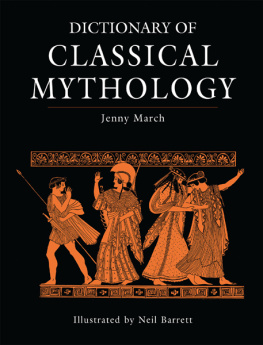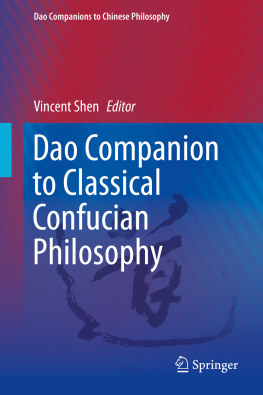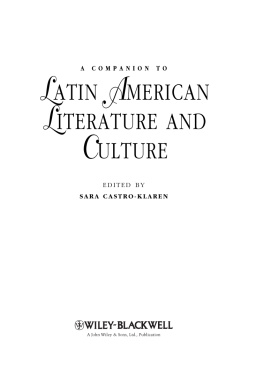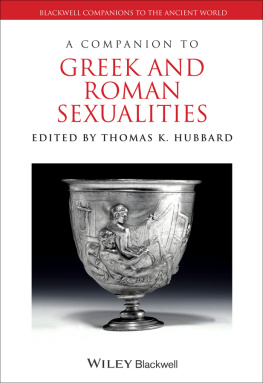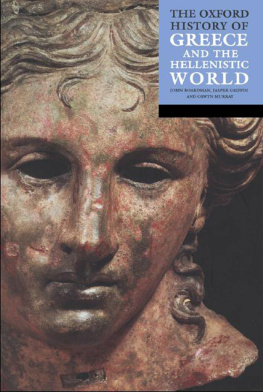While most e-readers can display special characters (such as and ), many cannot search for words containing them unless the special characters themselves are typed into the search box. If you are unable to type these characters, please browse for your term using the .
THIRD EDITION
Edited by M. C. HOWATSON


Great Clarendon Street, Oxford, OX2 6DP,
United Kingdom
Oxford University Press is a department of the University of Oxford.
It furthers the Universitys objective of excellence in research, scholarship, and education by publishing worldwide. Oxford is a registered trade mark of Oxford University Press in the UK and in certain other countries
Oxford University Press 1937, 1989, 2011, 2013
The moral rights of the author have been asserted
First edition published in 1937
Second edition published in 1989
First issued in paperback 1997
Reissued in hardback 2005
Third edition published in hardback 2011
First published as part of the Oxford Paperback Reference series 2013
All rights reserved. No part of this publication may be reproduced, stored in a retrieval system, or transmitted, in any form or by any means, without the prior permission in writing of Oxford University Press, or as expressly permitted by law, by licence or under terms agreed with the appropriate reprographics rights organization. Enquiries concerning reproduction outside the scope of the above should be sent to the Rights Department, Oxford University Press, at the address above
You must not circulate this work in any other form
and you must impose this same condition on any acquirer
Published in the United States of America by Oxford University Press
198 Madison Avenue, New York, NY 10016, United States of America
British Library Cataloguing in Publication Data
Data available
Library of Congress Control Number: 2013937765
ISBN 9780199548552
ebook ISBN 9780191073014
This new, third, edition of the Oxford Companion to Classical Literature is a revised version of the second edition, published in 1989 . It has been a privilege to be allowed to attempt a second revision of Sir Paul Harvey s original Companion of 1937 .
Harveys main intention was that his book should be a companion for the general reader, and this remains the ideal. But what does the general reader want nowadays with a companion to classical literature? Harveys reader was likely to have acquired some knowledge of the classical world in the course of learning Latin and Greek, whereas todays general readers are almost entirely ignorant of these languages. Yet todays readers are far more knowledgeable in other ways; they are widely travelled and more sophisticated. My aim is therefore not only to give some account of the literatures of Greece and Rome, which are after all their most precious legacy to the modern world, but also to set them against the concerns and constraints of their societies and institutions; As well as giving answers to who?, what?, and when? the Companion sometimes tries to answer the question why?, and to be a guide for those who wish to find out more.
All the entries taken over from the 1989 edition have been scrutinized and most have been revised. There are around 200 new entries, many of which reflect the way we view our own societies and the subjects which engage our interest at the present day: they deal with, for example, freedom, death, art, love and sexuality, science, and technology. Harvey set store by his synopses of what he considered the most significant works of classical literature, and these survive very much as he wrote them. In this edition they have been supplemented by other summaries, including the ancient novels and the scientific treatises of Aristotle. On the other hand, since Harveys day interest in some topics and authors has diminished almost to vanishing point. This is the case with political oratory and with the history of administration and of constitutions. Law does not fare much better. The previous entries on Demosthenes, Isocrates, and the Roman orator Cicero have accordingly been shortened, although it may be regretted that the modern attitudes towards political oratory, of boredom and suspicion, deform our understanding of an important part of the classical experience, in particular of the politics of Athens in the time of Demosthenes and Isocrates, and the education that prepared the Greek adult male to take part in it. A few longer entries on the historical or political background have also been abridged and some minor entries omitted for this edition. But no topic in classics can nowadays be regarded a priori as totally lacking in interest: many topics once considered marginal are now rightly seen to be well worth studying in the classical context: concepts of character, friendship, and good government (eunomia); anti-Semitism; the rise of Christianity; the attitudes of Athens and Rome to problematic citizens like Socrates and Catiline, and to children; there are entries which allude to all of these. A new development is the inclusion of additional entries in the online edition (Oxford Reference Online: http://www.oxfordreference.com/), for some of which there is no space in the printed Companion; others have been judged to be slightly outside its range, either because they are not specifically literary, such as army, or because they have been written with classical specialists in mind, such as metre.
The Companion is still a book for browsing. Extensive, but it is hoped not intrusive, cross-referencing will lead the reader into further byways. An asterisk before a word draws the readers attention to its existence as a separate entry only where more information may be found of direct relevance to the subject. The period covered begins about 2000 BC with the migrations into the Balkan peninsula of an Indo-European people whose languages subsequently evolved into a tongue recognizably Greek. The stopping-point is less easily identifiable. In the main my aim has been to cover as fully as possible the period up to AD 180 , the date of the accession of the Roman emperor Commodus, the last of the Antonine emperors whose reigns the English historian Edward Gibbon judged to be most happy and prosperous for the human race. Entries after that date are fewer than in the previous edition and mostly relate to the survival of classical literature.
The book requires no knowledge of Greek or Latin. All Greek is transliterated ( = y, = ch, = u). In the printing of the headwords some guidance is given to their commonest pronunciation in English, but there are no hard-and-fast rules. Proper nouns are generally spelt in the Latinized form in which they have become familiar in English, but where these are headwords their transliterated Greek form is also given. Roman names appear in the form in which they are most familiar, either under the

